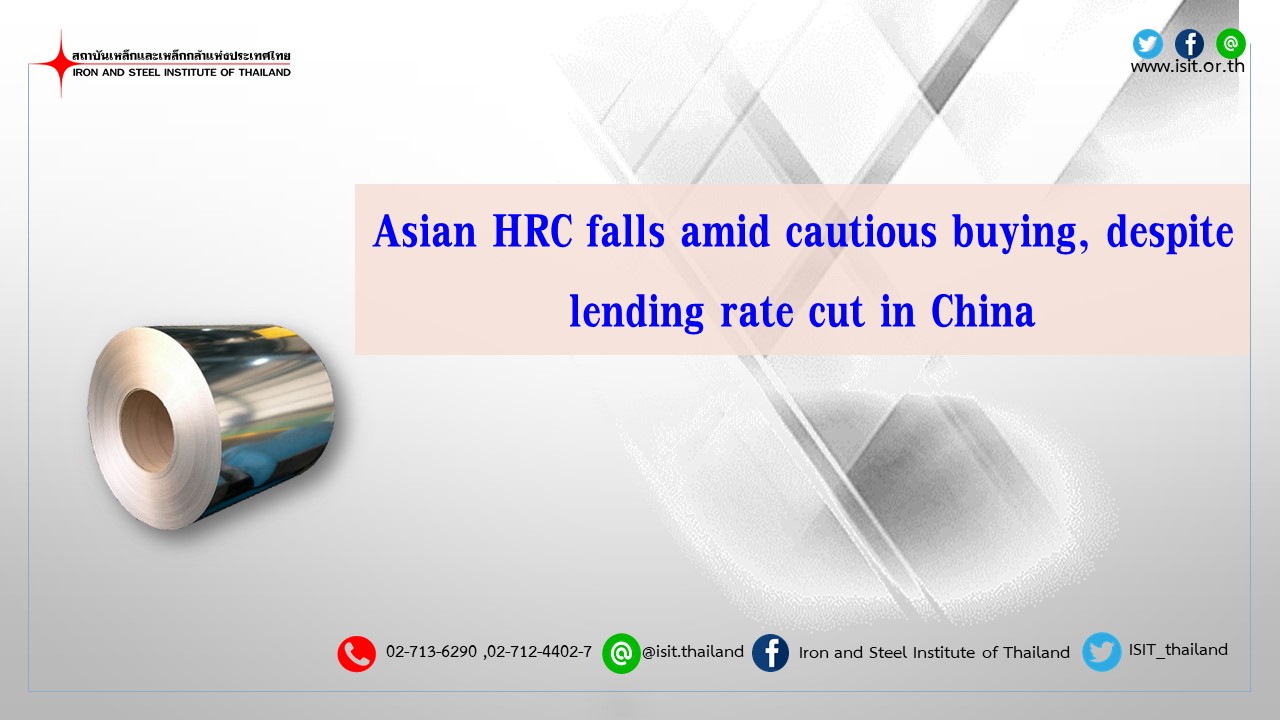
Asian hot-rolled coil fell Dec. 20, as buyers in Southeast Asia postponed their purchasing decisions amid bearish sentiment even as expectations of more competitive Chinese offers in the coming weeks loomed.
S&P Global Platts assessed SS400 HRC 3 mm thick at $776/mt FOB China, down $1/mt day on day. On a CFR Southeast Asia basis, the same grade of coil was assessed at $770/mt, unchanged day on day.
Platts assessed SAE1006 HRC at $794/mt FOB China, down $1/mt on the day. On a CFR Southeast Asia basis, the same grade of coil was assessed at $778/mt, unchanged over the same period.
Amid a slide in Chinese futures market, possibly on account of omicron concerns also reflecting in the global equities market, market activity remained unclear with market participants pointing out the inevitability of Chinese mills reducing offers in the near term to compete for export orders.
“Real export orders were rare in the last two weeks … most activites were traders booking from [Chinese] steel mills to square off the short positions taken earlier,” a Hangzhou-based trader said. “Chinese mills dropped the [SAE1006] HRC offers to $765/mt FOB China level but still unable to compete in market.”
In Shanghai, the spot price of Q235 5.5 mm HRC was assessed at Yuan 4,930/mt ($773.22/mt) ex-stock including value added tax, unchanged on the day. On the Shanghai Futures Exchange, the most actively traded January 2022 contract closed at Yuan 4,626/mt, down Yuan 54/mt, or 1.2%.
Offer from Indian mills remained largely unchanged at $785-$790/mt CFR Vietnam for January shipment. However, sources pointed that if Chinese mills reduce prices, buyers would become further hesitant to book Indian material as well.
“$790/t CFR Vietnam and $820/t CFR UAE are the workable levels from India,” an Indian trader said.
Market participants also deliberated on the impact of China cutting its benchmark lending rate for the first time in almost two years given the necessity to stabilize the macro-economy.
“I think that the demand for real estate-related steel will be supported by the reduction in lending rates, but it will not be a big increase in demand,” an Indonesia-based trader said.
“Rate cut is for general economic growth but property is still a key industry which is under Chinese government’s survey and control. Do not think it would just suddenly boom,” a Taiwan-based trader said.
The one-year loan prime rate, or LPR, was cut from 3.85 per cent to 3.8 per cent at the December fixing, while the five-year LPR -- which is a reference for mortgages -- remained at 4.65 per cent, according to the People’s Bank of China, or PBOC.
“This [rate cut] should help prop up the property prices. Hopefully, we may see some traction in early January,” an Indian mill source said.
“I think, these days weak market situation is coming not only from China but also other Asian countries. For example, Korean and Japanese local car industries still have a shortage issue, so they are focus on exporting…Indian mills can not export to EU due to full quota and omicron is another up-coming threat,” a Korean mill source said. “As a result, without recovery of demand until next year ... the market is expected to drop.”
Meanwhile, CIS mills continued to abstain from offering HRC to the Southeast Asia region.
---Steel Business Briefing